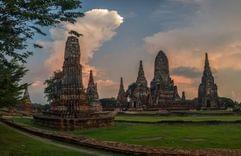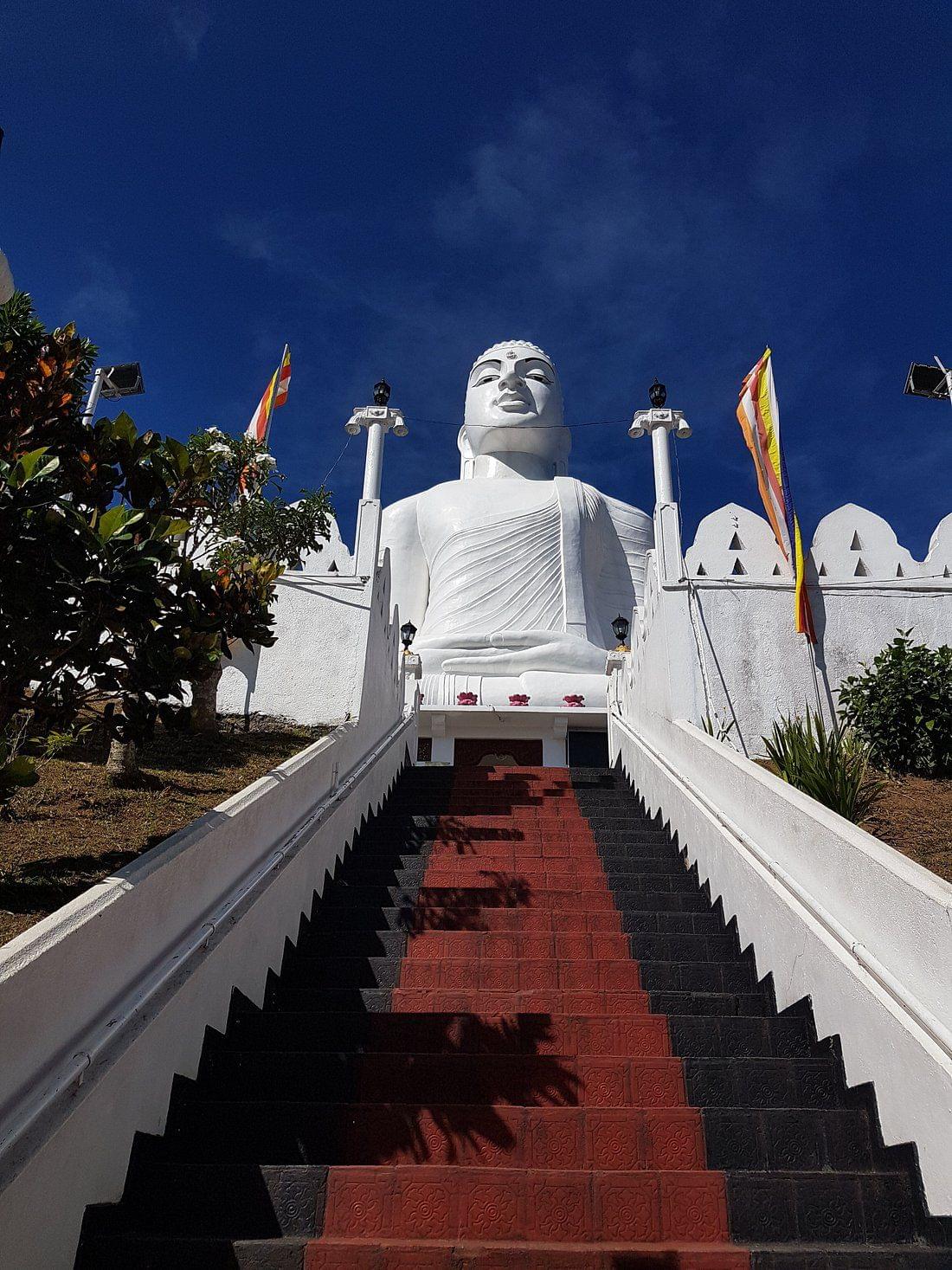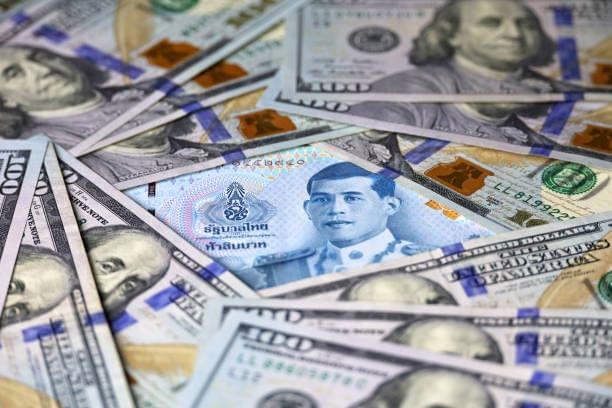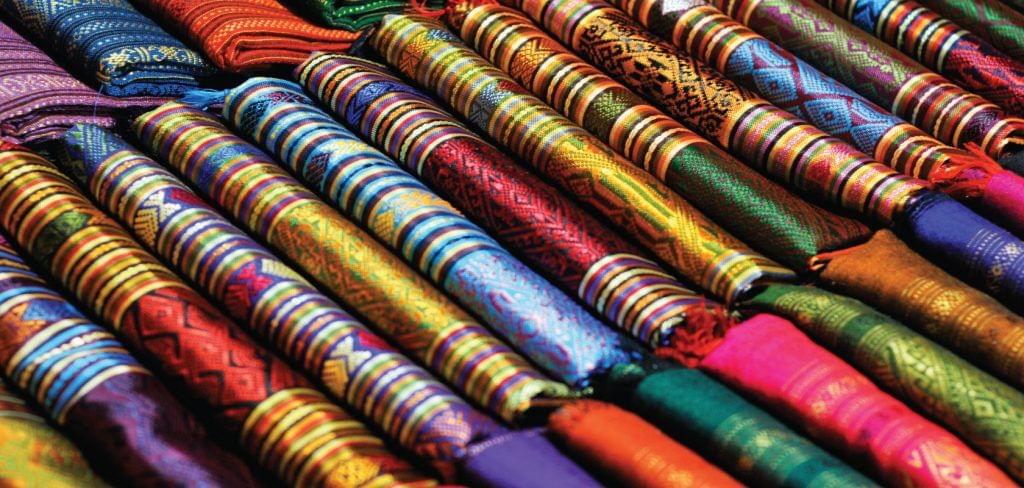- Tourism/thailand
- Tourism/thailand/bangkok
- Tourism/thailand/places To Visit In Bangkok
- Suan Pakkad Palace, Bangkok: Explore The Art And Antiques
Suan Pakkad Palace, Bangkok: Explore the Art and Antiques

Bangkok is a city that never stops giving. Being the party capital of Thailand, Bangkok is one such place that is full of energy, vibe and so much life! The city is beautiful in so many ways and it has just as much to entertain those who come there to have fun as it does to amaze the culture-curious traveller. Bangkok hosts a huge number of Buddhist temples and monasteries that are reflective of the beautiful heritage of ancient Thailand. The artistic side of Bangkok celebrates the aesthetic beauty of Thai culture in its own unique way. Explore the vibrant culture, breathtaking landscapes, and exotic cuisine with our exclusive Thailand Packages from India, offering an unforgettable journey through this enchanting Southeast Asian destination.
One such museum that brings in tourists from all over the world is the Suan Pakkad palace in Bangkok. Suan Pakkad was originally a royal palace that has now been converted to an art museum that houses in itself around eight Thai teak pavilions that used to belong to the royal descents of Nagara Svagar. The palace is blessed with a rich collection of historic and cultural artefacts and antiques. The palace has been built on the well preserved principles of Thai architecture. Read on to find out more about the eight traditional Thai houses decked in this museum-turned-palace, and why it warrants a special place in your Thai holiday itinerary!
Things to do in Suan Pakkad palace

- Eight houses
In total, there are eight antique Thai houses here in Suan Pakkad palace. The Prince and the Princess of Chumbhot opened the doors of these houses and their reserves to the public in a spirit of sharing in the year 1952. It is really interesting to note that these were transported from their original location in Chiang Mai in northern Thailand. Each house here is two storeys high and is interlined with pathways on the upper platform. You can even walk from one house to another without completely getting out. The palace also has a beautiful garden that greets the visitors as soon as they enter. It is said that this garden was originally a family heirloom.
- Musical heritage
Legend has it that the father of the Prince of Chumbhot was a traditional Thai music composer. On these lines, the first among the eight houses of Suan Pakkad palace houses precious musical instruments owned and nurtured by the Prince’s father. These include rare drums, gongs, xylophones and other such instruments. The most loved and talked-about among these is a rare percussion instrument called Gong Wong Yai. The instrument has in itself sixteen metallic discs, each of which have a different pitch! The house also features old vinyl records of a 1920s Bangkok orchestra performance.
- Thai sculptures
The first house also has a number of artefacts that reflect sculptural and artistic brilliance from the historic periods in ancient Thailand and Southeast Asia. The highlights are war-weary swords, muskets and spears, portraits of former kings and Buddha images. Buddha images seen embracing the subduing Mara pose are a unique attraction here in Thailand. Houses 2 and 3 have on display ancient Thai thrones and Buddha images throughout different periods in ancient Thai history.
- Artistic collections
You can also visit houses number 2 and 3 to have a look at beautiful drawings from the 17th century that are reminiscent of the culture during that period. Have a look at the silverware from the nineteenth century placed among the food containers used by royalty. Interestingly, porcelain was used along with silver as cutlery. These houses also feature beautiful ornamental fans donated to the royal family by Buddhist monks. Some artistic collections date back to the prehistoric period. You can find artefacts that are reminiscent of traditional dances exclusive to Thai culture in houses 5 through 8.
- Lacquer pavillion
This pavilion can be traced back to the seventeenth century. This is the most admired feature among so many in the Suan Pakkad palace. It is said that this pavilion was originally located near a temple in Ayutthaya. This is one among the five pavilions hosted by the museum. This was originally brought to Bangkok by the Prince of Chumbhot as a birthday gift to the princess. The interiors of this pavilion are richly decorated with ornate murals of Ramayana and Buddhism. It is said that this is highly reflective of original Thai architecture.
Suggested Read: Best Travel Tips to Thailand
Highlights of Suan Pakkad palace

- The Suan Pakkad palace hosts several historic antiques unique to Thai culture, among which you can find the four thousand years old Ban Chiang pottery
- The Marsi gallery which is a part of the Suan Pakkad palace is a display of ancient Thai artworks
- The Suan Pakkad palace hosts preserved art works, musical instruments, Buddha sculptures, potteries and even the household items and cutlery used by the royal family
- Covered hallways and manicured gardens are unique highlights of the palace which rope in tourists from around the world
- Suan Pakkad translates to “cabbage patch”. This is because, before being converted into a museum hosting a collection of private houses by the royal family, this place used to be nothing more than a cabbage patch
Best time to visit Suan Pakkad palace

The palace is open throughout the week from 9 in the morning to 4 in the evening. If you want a quiet peaceful exploration of this artistic attraction then it is best to visit during the early hours. This is also a great place to visit during the afternoon when there is too much sun, as the gardens are a great escape from the heat.
- The entrance fee is 100 Baht.
Check Out: Best Places to Stay in Thailand
How to reach Suan Pakkad Palace

Apart from renting a taxi, the best way to reach the museum is by the Skytrain. You could take the Sukhumvit line and get down at the Phayathai station. From here it is almost a 5-10 minute walk to the museum. Explore the vibrant culture, stunning landscapes, and rich history of Thailand with our curated Bangkok package with flight, offering an unforgettable journey filled with adventure and relaxation.
Also Read: Best Night Markets in Thailand
Attractions near Suan Pakkad palace

- Jim Thompson house
The history-buff in you wants more? Here’s another find! After your tours around the Suan Pakkad palace you could pay a visit to the Jim Thompson house which is nearby. This house used to belong to the namesake American who contributed immensely to the Thai silk industry post World War II. It features a brilliant display of Asian art and so much more!
- King power Rangnam
Hit up the King Power Rangnam mall for some shopping after food for your history-obsessed brain. This mini shopping mall is a duty free shopping hub that hosts some of the world’s very well reputed brands for you to pick from. The place is also child-friendly and offers a refreshing break from your routine.
- Sam Sen Nai Philatelic museum
If you are someone who has a soft spot for stamps and mail, you should definitely check this place out! Sam sen nai philatelic museum hosts a huge number of historically important stamps that were used in the past. They also sell little souvenirs that you can take back with you!
Must Read: Best Cities in Thailand
Visitors should remove their shoes before entering the museum
It is 100 Baht for foreigners.
Update your location?



